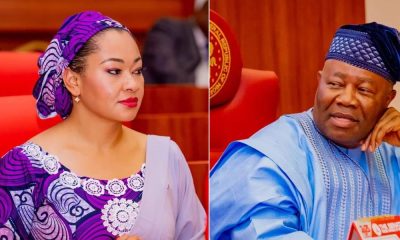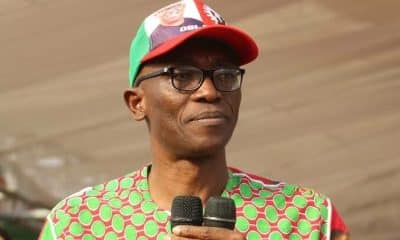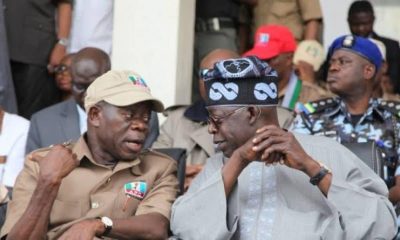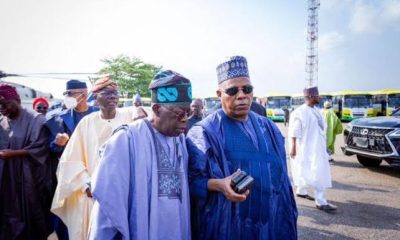Nigeria News
‘You Must Sell Fuel Cheaper’ – Marketers, Dangote In Fresh Rift Over Petrol Price
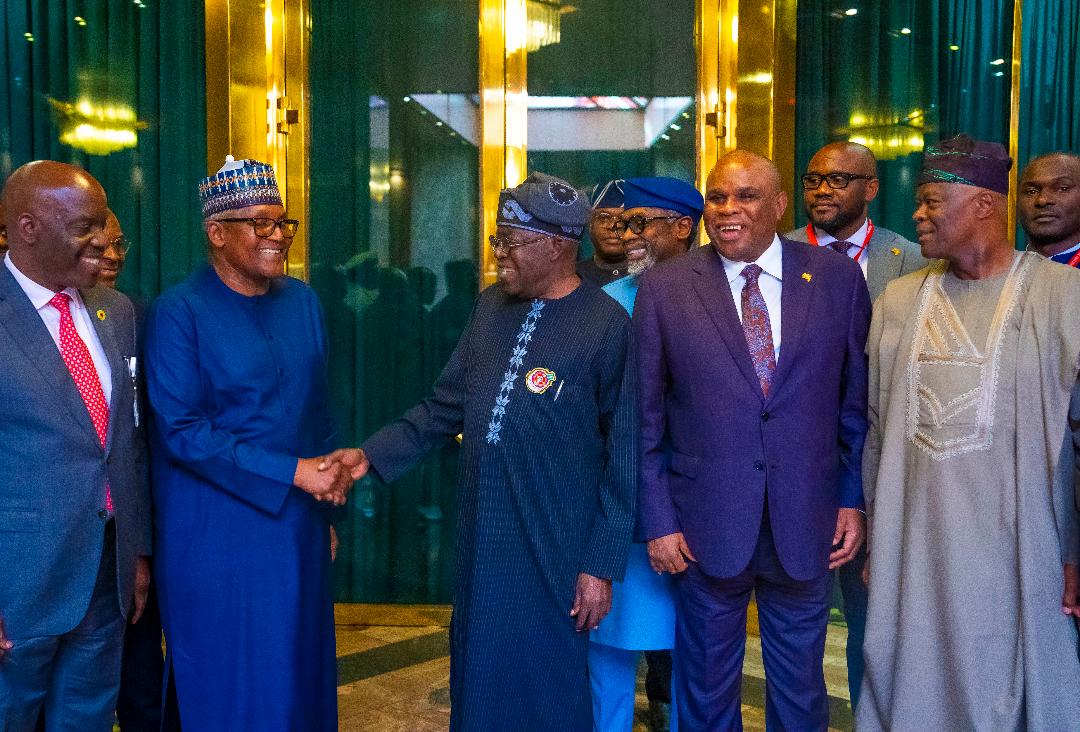
The ongoing dispute between Dangote Refinery and Nigerian petroleum marketers has intensified following statements by Alhaji Aliko Dangote, President of the Dangote Group, who claimed marketers have not been approaching his refinery for petroleum purchases.
Tensions arose in September with the distribution of premium motor spirit (PMS), commonly known as petrol, from Dangote Refinery. A disagreement developed between the refinery, the Nigerian National Petroleum Company Limited (NNPCL), and various petroleum marketers, sparking confusion across the sector.
Many Nigerians had anticipated lower fuel prices due to Dangote’s private refinery, but prices instead surged, disappointing consumers. Those who spoke to Daily Trust have expressed frustration over the disagreements among key stakeholders, emphasizing their demand for affordable, readily available fuel rather than public disputes.
However, Dangote suggested that lower fuel prices might be out of reach due to what he described as “apathy” from marketers.
Speaking after a recent meeting with President Bola Tinubu on the naira-for-crude policy, Dangote stated that his refinery was capable of supplying over 30 million liters of fuel daily and had enough reserves to meet the country’s needs.
“At full capacity, we can meet consumption needs, estimated at 30-32 million liters, and could even begin producing this by next week,” Dangote said.
“Currently, we have 500 million liters in our tanks, enough to sustain the country for over 12 days, even without additional production or imports. We are ready to supply the market with 30 million liters per day,” he added.
Dangote’s remarks sparked responses from both major and independent petroleum marketers, who countered that they were indeed ready to purchase from his refinery—if the price was competitive.
Marketers emphasized that competition in a deregulated market is crucial.
One of the marketers said: “If you have a shop and people don’t come to buy your wares, what do you do? Do you go and complain to the government that people must come to my shop?
“Dangote is a private business, like the rest of us. If I have my filling station and people don’t come to my filling station, do I go and complain to myself?
“You should do what will make people come to you; that is what competition means. So, everybody must learn to compete. It is an open market and just like every member of the public has the free will to buy from any station they want to buy, everybody in this deregulated market must compete for its customers including the refineries. Everybody must compete. If you have good terms, customers would come to you.”
Some marketers disclosed that the refinery’s current pricing exceeds that of imported products. One marketer claimed, “If Dangote’s price were lower, we’d buy from him. I recently landed imports at N970 per liter, whereas Dangote’s rate was N977. Buying from him at these prices would result in substantial losses.”
For members of the Independent Petroleum Marketers Association of Nigeria (IPMAN), the situation is more complicated.
IPMAN President Abubakar Maigandi stated that despite assurances from the Minister of Finance, Wale Edun, members have been unable to directly access products from Dangote Refinery after payment.
Former IPMAN Chairman, Ejigbo Satellite Depot, Akinrinade Akinade, added, “It seems Dangote is unwilling to work with independent marketers. Despite instructions from the Finance Minister to sell directly to us, the refinery prioritizes its contract with NNPC, effectively shutting us out.”
Clement Isong, Executive Secretary of the Major Energy Marketers’ Association of Nigeria (MEMAN), echoed the market’s readiness to buy locally refined fuel at a competitive price.
“The market prefers to buy locally to save on freight costs. We expect to benefit from the cost-saving in naira-based production,” he told Daily Trust.
Meanwhile, Tony Chiejina, Chief Branding and Corporate Communications Executive of Dangote Group, stated that the refinery was established to benefit Nigeria.
“Our refinery is here to serve Nigerians,” Chiejina said, highlighting that local refining should be celebrated as a breakthrough.
However, consumers remain skeptical. Oladele Johnson, a commercial transporter, criticized the ongoing back-and-forth as a ploy to drive prices up, adding, “The government and stakeholders are taking us for granted. We were promised lower prices, but they keep rising. It’s hard to believe we’ll see affordable fuel in Nigeria again.”
Sani Yusuf, a transport union leader in Lagos, called for transparency among all players in the oil sector to ensure fair practices.

